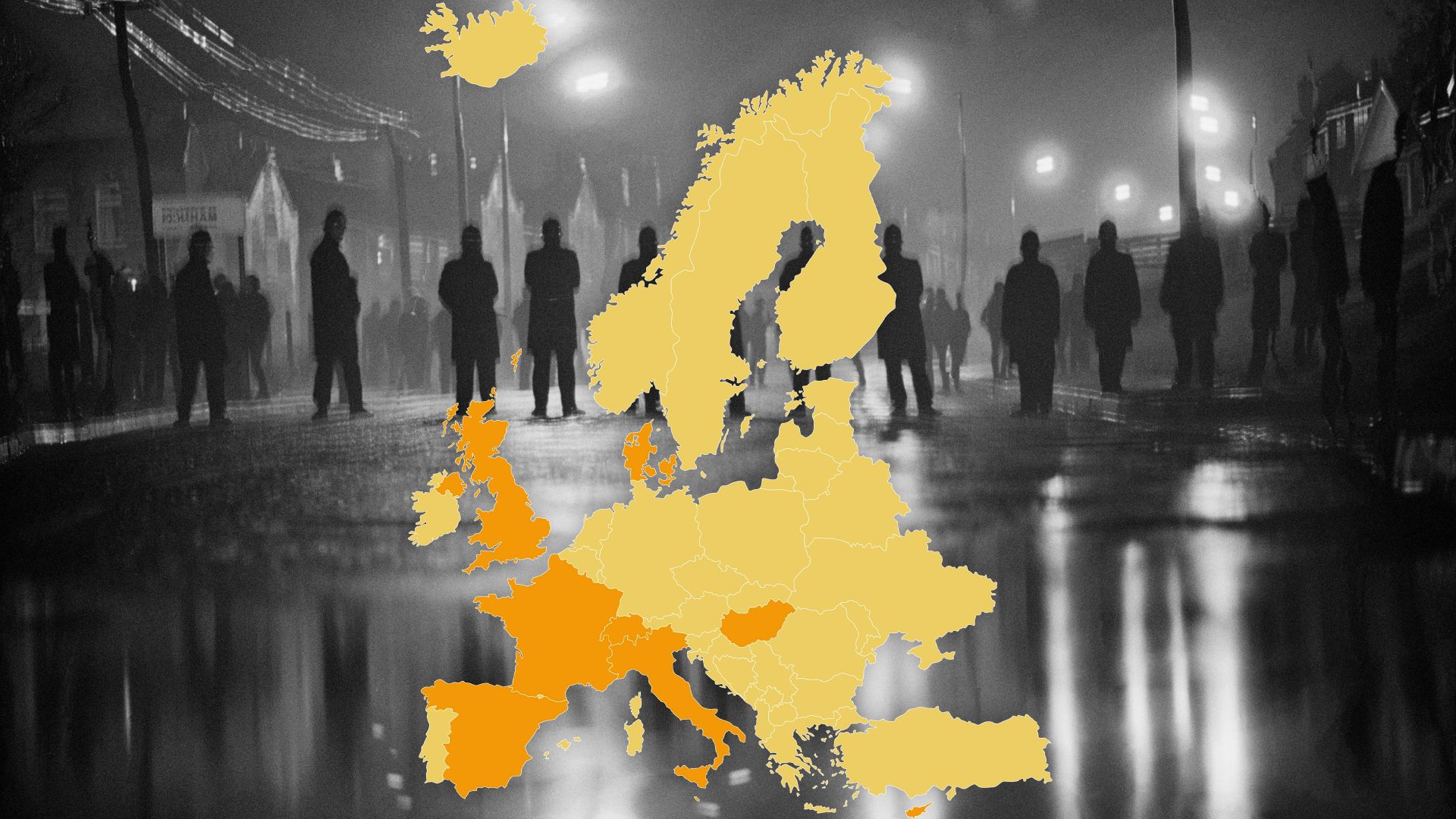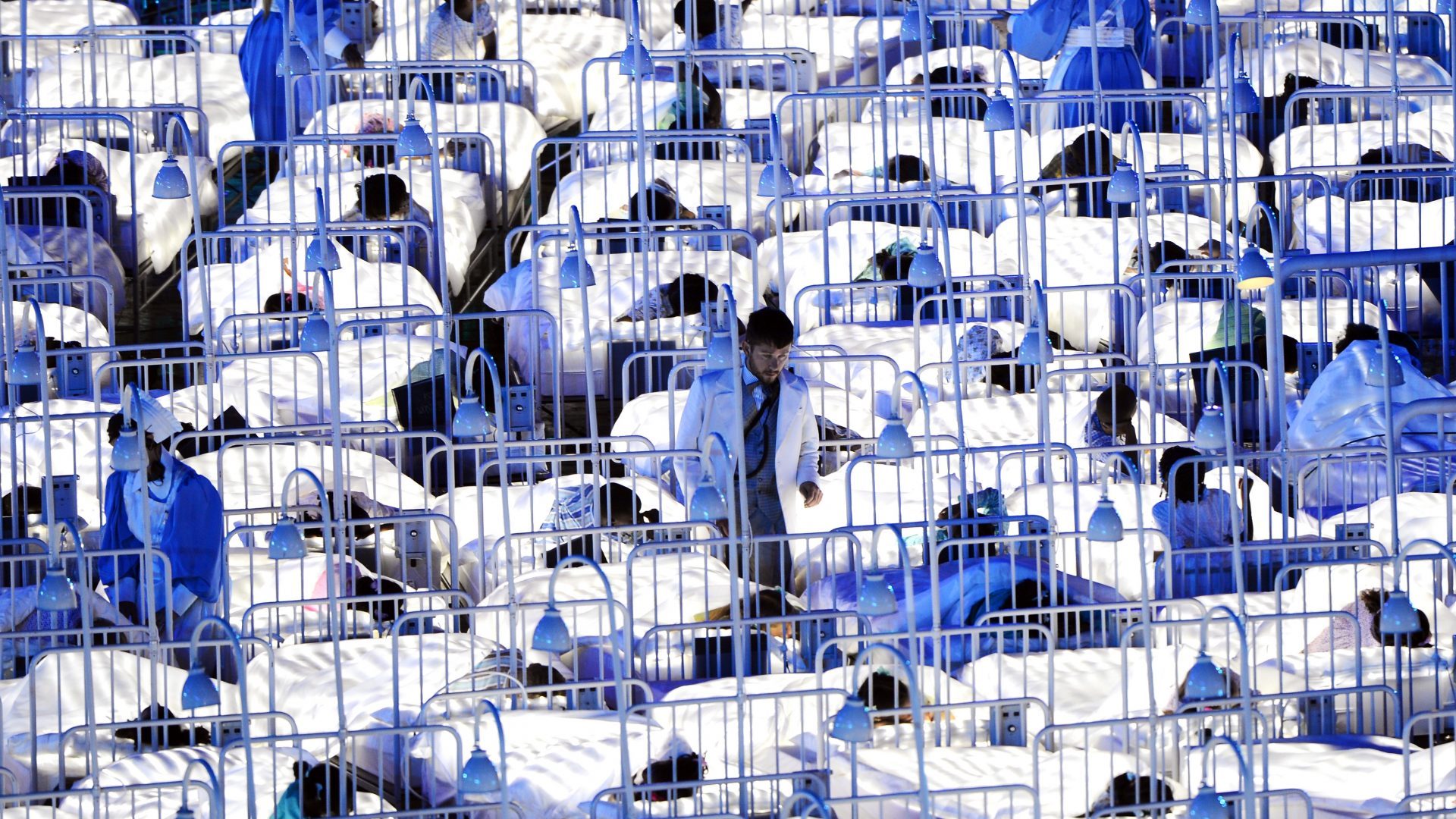UK
It won’t have escaped your attention that a wave of strike action has swept Britain. The 467,000 working days lost to industrial action in November were the worst single-month total for a decade, and days lost over a six-month period reached their highest level since 1989-90. Things have got even worse since: nurses on strike for the first time in 106 years, the RMT strike laying waste to festive travel plans, and now teachers and health workers planning industrial action in February. The impact feels greater because Britain has become a low-strike nation as union membership has declined from 53% of the working population in 1980 to 23% now. Only 33,000 workers were involved in labour disputes in 2017; the lowest number since records began in 1893. Two years later, as Britain recorded 4.9 average strike days per 1,000 workers, the average across the rest of Europe was 22.3.
FRANCE
The French are viewed as Europe’s great militants, and last week saw vast disruption in response to President Macron’s plans to reform the country’s pension system and increase the retirement age from 62 to 64. A million marched, tens of thousands walked out of work, and France’s largest trade union declared this was “only a starting point”. According to a European Trade Union Institute study of 17 countries, France lost an average of 127 working days per year per 1,000 employees between 2000 and 2009, and 128 days between 2010 and 2019. In both cases, this put them second in the European league table of strikes. And in the Covid-hit years 2020-21, the average days lost per 1,000 employees was still 79, Europe’s highest figure.
SPAIN
According to the ETUI’s study of 17 nations, Spain suffered the largest amount of disruption due to strikes from 2000-09, with 153 working days lost per 1,000 employees. But this fell to 49 days lost between 2010 and 2019, and until last year, the country’s last general strike had been in 2014. However, the cost-of-living crisis and government plans for welfare reforms have changed everything. A lorry drivers’ strike was quickly settled, but doctors and healthcare workers will take action again later this month and air-traffic controllers are holding a series of walkouts in the rest of January and February.
ITALY
Italy lost an average of 156 strike days per 1,000 workers per year during the 1980s, but in the decade between 2008 and 2018, the figure dropped to just 42 days per 1,000. A 99% collective bargaining coverage rate is credited with some of the improvement, but Giorgia Meloni’s fledgling government is now facing a wave of unrest over its budget. A series of transport strikes halted travel in December, and the new year has brought no resolution. This week, strikes at petrol stations are expected as Meloni ponders an end to government subsidies that have kept prices low during the energy crisis.
CYPRUS
Between 2010 and 2019, Cyprus lost the largest number of working days due to industrial action among 17 European nations – a staggering average of 275 days lost per 1,000 employees. The high figure was a byproduct of the country’s financial crisis, in which an EU bank bailout chased out offshore business. Bank workers went on strike, but other industries followed, in protest at austerity measures including suspension of the cost-of-living allowance, in place since 1944. Cyprus exited its bailout in 2016 and the allowance was partially reinstated in 2018, but this week workers will strike across the country for three hours, demanding gradual full restoration.
DENMARK
Between 2000 and 2009, Denmark was the third most-affected nation by industrial action in Europe, losing an average of 105 working days per 1,000 employees as the country grappled with the concept of flexicurity – the now-famous Danish labour market model that means employers can easily hire and fire workers to adjust to market needs, but wages and unemployment benefits are high. Government intervention to encourage a culture of negotiation and mediation in industrial disputes helped to cut working days lost to 46 per 1,000 workers between 2010 and 2019, aided by the emergence of “yellow” unions, some of which do not believe in strike action. However, none of this prevented Denmark’s longest strike in 50 years in 2021, in which nurses walked out for 10 weeks before the government intervened to impose a pay deal.
SWITZERLAND
Historically, the Swiss have rarely taken to the streets to express their discontent with employers, and the nation has one of the lowest rate of strike action in Europe. Between 2000 and 2009 the country lost just four working days per 1,000 workers due to industrial action. This decreased to two between 2010 and 2019, and one day lost from 2020-21. Understandably, the country has a fairly low rate for collective bargaining compared with the rest of Europe – just 47% of workers are covered. In contrast, the collective bargaining coverage rate for French industry is 98%. In Denmark it’s 80%, and in Spain 69%.
HUNGARY
On average, Hungary lost 23 working days per 1,000 employees between 2000 and 2009. Yet, in the succeeding decade, the number of days lost declined to six per 1,000 workers, thanks to a minimum service levels clause introduced by Viktor Orbán’s administration. More restrictive than the minimum service levels discussed by Rishi Sunak’s government, Hungary now requires courts to agree on what constitutes minimum service and, until this decision has been made by the courts, the strike is illegal. This did not stop a vast teachers’ strike from taking place last month over longheld disputes about pay and working conditions, but Hungary is a graveyard for workers’ rights. In 2019 Orbán deregulated overtime and there have been reports of anti-union dismissals and union busting.



